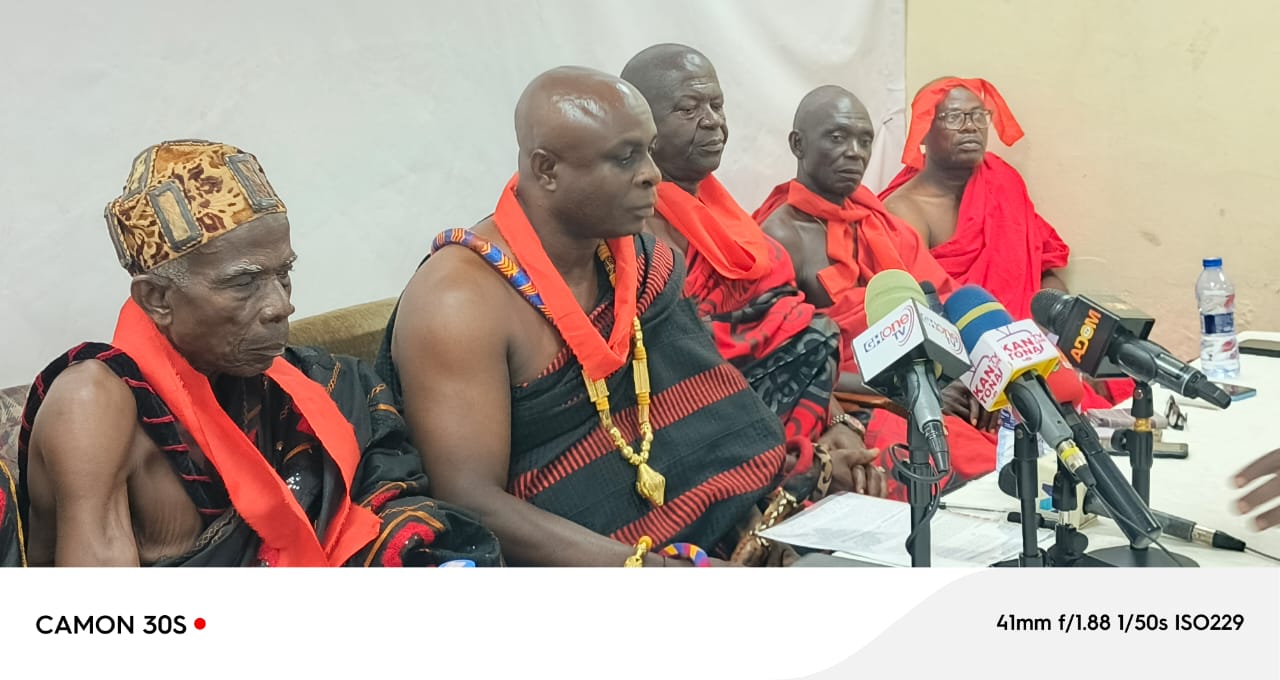
The Aowin Traditional Area, located in Ghana’s Western North Region, is facing one of the most unprecedented breakdowns in its traditional governance in recent memory.
But this isn’t just a story of a disputed chief; it’s a reflection of how traditional authority is increasingly being hijacked for personal, political, and financial gain.
At the centre of the storm is Mr. Thomas Antwi-Agyei, who claims the stool name Beyeeman Tano Kwaw Benbuin III.
According to a detailed press statement released by the Aowin Traditional Council on May 23, led by Nana Kwame Nkansah II, Chief of Jomoro, Mponuahene and Spokesperson for the Acting President of Aowin Traditional Council, his rise to power is not rooted in ancestral legitimacy but rather in forged documents, illegal installations, and the brute force of armed vigilantes.
Traditional leaders accuse Mr. Antwi-Agyei of upending centuries-old customs by installing rival chiefs in already-occupied stools in Boinso, Adum, and Amonie, Aowns with long-standing, gazetted leadership. This has splintered communities, leading to tensions and in some cases, violent confrontations.
“This is not chieftaincy, it’s colonization by our own kin,” lamented Nana Kwame Adade II, the legitimate chief of Amonie.
But the crisis in Aowin isn’t just about authority, it’s also about money and land.
Under Mr. Antwi-Agyei’s alleged leadership, vast tracts of protected forest lands have been opened up to illegal mining operations. Small-scale miners are being extorted, and their equipment is reportedly seized and stored in the palace.
In return, Mr. Antwi-Agyei is said to receive cash, vehicles, and other compensation from galamsey operators.
“He’s turned the stool into a business enterprise,” said a local miner who asked not to be named for fear of reprisal. “If you don’t pay, you don’t work.”
Even more troubling is how these activities are being sanctioned under the guise of traditional rulership.
Mr. Antwi-Agyei has opened an unauthorized bank account in the name of the Traditional Council, through which he allegedly channels revenues from companies like Samatex Ltd. to fund his operations and maintain loyalty among his followers.
These developments have shocked traditionalists across the region, who worry that the legitimacy and sanctity of chieftaincy are being eroded. “This is a clear abuse of our cultural values,” said Professor Esi Mends, a cultural anthropologist. “Chieftaincy is meant to unite, guide, and protect, not to exploit and divide.”
Perhaps most disturbing are the symbolic acts Mr. Antwi-Agyei has allegedly engaged in.
According to the Council, he has conducted biweekly sheep-slaughtering rituals to curse regional and national leaders.
These public ceremonies, captured on local media, have sparked outrage for their implications on national unity and the sacredness of traditional rites.
At a time when Ghana is working to integrate traditional governance into the framework of modern democracy, the situation in Aowin highlights the dangers of leaving these institutions vulnerable to political capture and economic exploitation.
Unless swift and decisive action is taken, the Aowin case could set a dangerous precedent, where power, not lineage or custom, becomes the new currency of traditional leadership.

